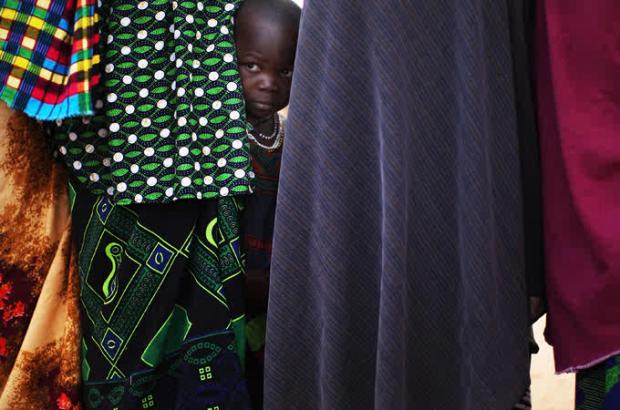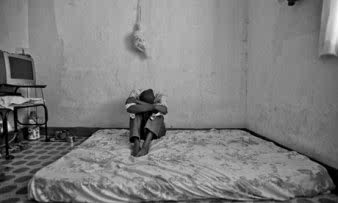The Route to Asylum-Africa
Al-Jazeera/ English Channel’s team has composed a Horrible story of African Asylum Seekers’ journey by ship leading to different routes. The team’s risk of traveling with these migrants capturing real time nuance of the truth, is appreciable.
Meanwhile, The story is very much similar to the conditions of Afghan Migrants’ journeys from their War Torn native to the other side of Indian Ocean inside leaking boats on fatal waters seeking for Asylum. In fact, what makes both to cross all the geographical borders at the risk of life, is the same in both the native lands, Terrorism.It’s, for both, a choice of “stay, get killed” or “escape, die/live.”
……
More
Rape Of Men
http://m.guardian.co.uk/society/2011/jul/17/the-rape-of-men?cat=society&type=article
Of all the secrets of war, there is one that is so well kept that it exists mostly as a rumour. It is usually denied by the perpetrator and his victim. Governments, aid agencies and human rights defenders at the UN barely acknowledge its possibility. Yet every now and then someone gathers the courage to tell of it. This is just what happened on an ordinary afternoon in the office of a kind and careful counsellor in Kampala, Uganda. For four years Eunice Owiny had been employed by Makerere University’s Refugee Law Project (RLP) to help displaced people from all over Africa work through their traumas. This particular case, though, was a puzzle. A female client was having marital difficulties. “My husband can’t have sex,” she complained. “He feels very bad about this. I’m sure there’s something he’s keeping from me.”
Owiny invited the husband in. For a while they got nowhere. Then Owiny asked the wife to leave. The man then murmured cryptically: “It happened to me.” Owiny frowned. He reached into his pocket and pulled out an old sanitary pad. “Mama Eunice,” he said. “I am in pain. I have to use this.”
….
Continuedhere
Amazing Afghans
- The Writer describes Afghanistan as a land of Self Dependent Hard bitten people. After mentioning the Russian invasion followed by their escape and, then, 9/11 twist in Afghans’ disturbed history, she suggests the solution to be bourne in Afghan Population themselves and not in Foreign aids, funding and impositions. She has discovered the Afghans’ inherent trait of Strong Determination, which she believes is the only remedy for Healing Afghan interminable chaos.
Note: article is posted for reading purpose only without any consultation.
“DiManno: Afghanistan hurtling into 21st century
July 16, 2011 21:07:00
Rosie DiManno
Star Columnist
KANDAHAR:
As a young girl, I dreamed of Afghanistan.
Youthful reading of Rudyard Kipling’s work — when friends were still playing with Barbie dolls — may have planted the seed.
But from my sheltered existence in a traditional Italian home, I yearned for adventure in distant places. And nowhere seemed more remote than this mystifying country of horseback warriors and veiled women.
For years I devoured every small piece of information I could find about Afghanistan, assembling an esoteric private library of old texts, obscure literature and ancient maps.
At age 22 I bought my first ticket to Kabul, a trip that was scotched by the Soviet invasion, subsequent civil war and the Taliban’s stunning rise to power. It seemed the opportunity to travel here would never be realized.
And then came 9/11.
Suddenly Afghanistan was at the centre of the world. Fortuitously, I had substantial knowledge of this country’s history and culture. A few weeks after Sept. 11, the Star pointed me towards Afghanistan — with its then-closed borders — and said go.
So I went, the first of nine trips here over the next decade.
That first time I entered from Tajikistan, crossing the mined Amu Darya on a barge, delivered into the hands of Northern Alliance mujahedeen who held just a tiny piece of territory in the northeast. I had no interpreter, no fixer, no contacts and no clue. We piled into a battered Soviet jeep and set out across the moonscape desert.
I was giddy with excitement, finally on Afghan soil, the first Canadian journalist into the country since 9/11. Then our jeep tipped into a wadi nose-first and got stuck. We heaved and huffed, to no effect.
And still I was mesmerized by the canopy of stars overhead, the vast emptiness of the desert. I felt oddly safe in the hands of these mujahedeen with their Old Testament faces and their ragged clothes.
How strange a sight I must have been to them, too, men who never saw women’s faces uncovered except for close relatives, inside the home, and for most it had been many years since they’d been home, fighting against one foe after another.
Finally, from over a ridge, appeared about a dozen men and boys, making war-cry sounds in their throat. I thought, uh-oh. But they were the cavalry, anti-Taliban locals to the rescue, hauling out our vehicle and gesticulating shyly to me in welcome.
They were so glad that America had finally taken notice of Afghanistan. They anticipated invasion and were glad for it, eager for the detested Taliban to be vanquished.
In the months to come, I would ford a river on the back of a donkey on the way to the front, spend nights sleeping in a trench with the mujahedeen, waken to U.S. planes dropping bombs on Taliban positions and, on one terrible morning, ride in a pickup truck to retrieve the bodies of three European journalists who had been slain in an ambush.
I was foolish enough to think, in those early days, that I understood this country. A decade on, I realize how little I know. Afghans are unfathomable. But they are also noble creatures and I remain enthralled. Some of them are my very dearest friends. Too many of them are dead.
What I do comprehend is how phenomenally Afghanistan has changed since I first saw it.
In late 2001, this country was frozen in time, only dimly aware of its own backwardness. Now even shepherds have cellphones, rooftops are studded with satellite dishes — my God, they Skype — and, at least in the less rigid north, women have somewhat of a public life.
I have seen the progress with my own eyes, cross-crossing the country on overland treks, usually as a non-embedded reporter, living among the citizens.
It is an altered state rushing headlong into the 21st century. In 2001 I had to buy my own generator to bring electricity into the mud-walled guest house where I was lodging so that I could power my satellite phone to file stories. Now there’s Internet nearly everywhere, offices hum with computers and even the medievalist Taliban are techno-savvy.
This, I think, is what will eventually reshape Afghanistan — not war, though it served a crucial purpose, and not the deranged do-gooders who come here as humanitarian apostles oozing donor charity, fostering a begging-bowl mentality.
Even in the deepest, most isolated barrens of this country, the scales have fallen from Afghans’ eyes. TV and the Internet — and schooling for a younger generation, which is why the Taliban so fears education — have done what invading armies and “humane imperialism’’ could not: defeat ignorance.
They know they deserve something better than what they’ve had. They know life shouldn’t be so harsh and oppressive. They recognize the inertia of tradition even as they fiercely defend a distinct culture.
And wise elders, who still administer the law in their sub-tribes, are increasingly recognizing what can no longer be countenanced. One of them, who previously worked as my fixer in Kandahar until succeeding his father in the role as elder, recently intervened to stop a 60-year-old man from taking a 14-year-old bride. He actually slapped the old coot’s face in disgust.
There is an inevitability to Afghanistan awakening from its seclusion and solitude. Not even a re-emergent Taliban can halt enlightenment. But it will happen at an Afghan pace.
I love this country. I feel proprietary about it. And, oh my, I’ve had adventures.
But I’m just a stranger, passing through.”
Original Articlehere

